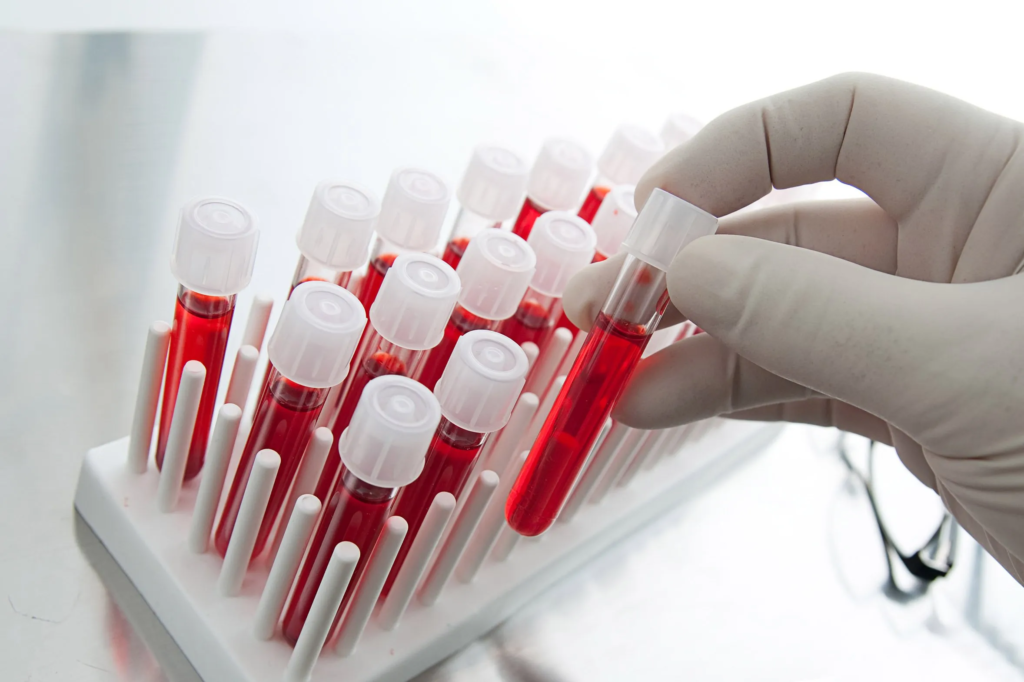In the world of competitive sports and fitness, athletes are constantly seeking ways to gain an edge and optimize their performance. One increasingly popular method is performance blood testing, a specialized form of medical analysis tailored specifically to the needs of athletes. This advanced approach to health monitoring goes beyond standard medical check-ups, offering insights that can significantly impact training, recovery, and overall athletic achievement.
What is Performance Blood Testing?
Performance blood testing is a comprehensive analysis of an athlete’s blood composition, designed to provide detailed information about various physiological markers that influence athletic performance. Unlike routine blood tests that primarily screen for diseases or general health issues, performance blood testing focuses on parameters directly related to athletic function, recovery, and potential areas for improvement.

Key Differences fromPerformance Blood Testing: Unlocking Athletic Potential Standard Blood Tests
While standard blood tests typically assess basic health markers such as cholesterol levels, blood sugar, and red blood cell count, performance blood testing delves deeper into specific areas that affect athletic performance:
- Expanded Hormone Panel: In addition to basic thyroid and sex hormone levels, performance tests often include more detailed analyses of hormones like cortisol, DHEA, and growth factors that play crucial roles in recovery and adaptation to training.
- Nutrient Profiling: These tests often include a more comprehensive assessment of vitamins, minerals, and other micronutrients that can impact energy levels, muscle function, and overall performance.
- Inflammation and Oxidative Stress Markers: Performance tests may include specific markers for inflammation and oxidative stress, which can indicate overtraining or inadequate recovery.
- Metabolic Efficiency Indicators: Specialized tests can provide insights into how efficiently an athlete’s body is utilizing energy, including markers for fat and carbohydrate metabolism.
- Recovery and Overtraining Indicators: Specific markers can help identify signs of overtraining or inadequate recovery, allowing for timely adjustments to training programs.
The Science Behind Performance Blood Testing
Performance blood testing is rooted in the principles of functional sports medicine, an integrated approach that addresses the entire body and focuses on the root causes of performance limitations and injuries. This holistic perspective allows for a more nuanced understanding of an athlete’s physiological state.
Biomarkers in Focus
Some key biomarkers typically assessed in performance blood testing include:
- Hemoglobin and Hematocrit: These markers indicate oxygen-carrying capacity, crucial for endurance performance.
- Testosterone and Cortisol Ratio: This balance can provide insights into an athlete’s anabolic (muscle-building) vs. catabolic (muscle-breaking) state.
- Vitamin D Levels: Often overlooked, vitamin D plays a vital role in muscle function and bone health.
- Iron and Ferritin: Essential for oxygen transport and energy production, particularly important for endurance athletes.
- Creatine Kinase: An indicator of muscle damage and recovery status.
- Inflammatory Markers: Such as C-reactive protein (CRP) and interleukin-6 (IL-6), which can indicate systemic inflammation.

Benefits of Performance Blood Testing for Athletes
Incorporating regular performance blood testing into an athlete’s regimen can offer numerous advantages:
- Personalized Training Optimization: By understanding their unique physiological profile, athletes can tailor their training programs to address specific weaknesses or capitalize on strengths.
- Injury Prevention: Early detection of imbalances or deficiencies can help prevent injuries before they occur.
- Enhanced Recovery: Identifying markers of overtraining or inadequate recovery allows for timely adjustments to training load and recovery strategies.
- Nutritional Fine-tuning: Detailed nutrient profiling enables precise adjustments to diet and supplementation.
- Performance Tracking: Regular testing provides objective data to track progress and the effectiveness of training interventions over time.
- Mental Edge: Having detailed knowledge of one’s physiological state can boost confidence and provide a psychological advantage in competition.
Implementing Performance Blood Testing
To maximize the benefits of performance blood testing, athletes should consider the following approach:
Frequency of Testing
The optimal frequency of blood tests for athletes can vary depending on training phase, competition schedule, and individual needs. However, a general guideline might include:
- Baseline testing at the start of a training cycle
- Mid-cycle testing to assess adaptations and make adjustments
- Pre-competition testing to ensure optimal readiness
- Post-season testing to evaluate overall impact and plan for the next cycle
Interpreting Results
Interpreting performance blood test results requires expertise. It’s crucial to work with healthcare professionals who specialize in sports medicine and understand the unique demands of athletic performance. These experts can provide context to the numbers and offer actionable recommendations based on the results.
Integrating Insights into Training
The true value of performance blood testing lies in how the insights are applied to an athlete’s training and lifestyle. This might include:
- Adjusting training volume or intensity based on recovery markers
- Modifying nutrition plans to address deficiencies or optimize energy systems
- Implementing specific recovery protocols based on inflammation or muscle damage markers
- Fine-tuning supplementation strategies to support performance goals
Case Study: The Impact of Performance Blood Testing
Consider the case of a professional cyclist preparing for a major tour. Through regular performance blood testing, the athlete’s medical team identified a subtle iron deficiency that was impacting oxygen-carrying capacity. Despite feeling relatively good, the blood test revealed that the athlete’s ferritin levels were suboptimal for peak endurance performance.
By addressing this issue through dietary changes and targeted supplementation, the athlete was able to significantly improve their aerobic capacity in the weeks leading up to the competition. This intervention, prompted by insights from performance blood testing, potentially made the difference between a podium finish and falling short of their goals.

The Future of Performance Blood Testing
As technology advances, the field of performance blood testing continues to evolve. Emerging trends include:
- Microsampling Techniques: Allowing for less invasive, more frequent testing
- Real-time Monitoring: Development of wearable devices that can continuously track certain blood markers
- AI-driven Analysis: Advanced algorithms to provide more nuanced interpretations and predictive insights
- Integration with Other Data: Combining blood test results with data from wearables, sleep trackers, and other sources for a more comprehensive view of an athlete’s status
Blood test for athletes represents a powerful tool in the modern athlete’s arsenal. By providing detailed insights into an athlete’s physiological state, it enables a level of personalization and precision in training and recovery that was previously unattainable. As the field continues to advance, performance blood testing will likely play an increasingly central role in helping athletes of all levels reach their full potential.
While not a magic solution, when combined with proper interpretation and application, performance blood testing can be the key to unlocking new levels of athletic achievement. As with any medical intervention, it’s crucial for athletes to work with qualified professionals to ensure that blood tests for athletes are used effectively and ethically in pursuit of performance goals.







